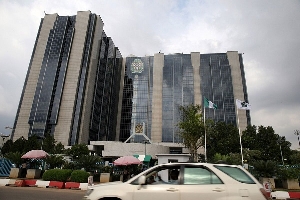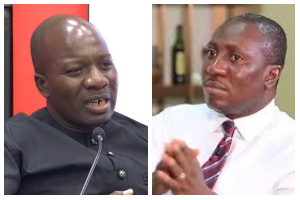Nigeria’s financial inclusion has experienced significant growth, primarily due to increased accessibility and equality in obtaining related products and services. Data shows that the country is on its way to achieving the financial inclusion target.
Recently, the Central Bank of Nigeria (CBN) Deputy Governor of Economic Policy Directorate Muhammad Sani Abdullahi told investors at the Citi-CEEMA conference in London that three out of every five Nigerians were financially included in 2023.
The apex bank official cited the data provided by Enhancing Financial Innovation and Access (EFIna), a financial sector deepening organisation, latest survey.
According to EFIna’s survey, the percentage of financially included people has increased from 68% in 2020 to 74% in December 2023. Experts think that fintech innovations and rise of digital assets have fast-tracked financial inclusion growth.
Efina reported that formal financial inclusion has grown significantly from 56% in 2020 to 64% in 2023, fuelled by marginal growth in the banked population and major gains in non-bank formal adoption
The percentage of adults who depend on unofficial financial providers decreased during the period covered by the report, which also stated that financial exclusion decreased by 10% points from 2020 (or a 9 million drop in excluded adults).
Still, about 1 in 4 Nigerian adults remain financially excluded, it added.
The percentage of adult Nigerians who solely rely on banking services is declining, which Efina claims illustrates the ecosystem shift. The growing number of providers being used in combination to meet financial needs, according to the report, indicates that some needs are being satisfied outside of the formal banking system. It also highlights the role of technology in driving access.
Despite growing access, including significant gains in the North-East and North-West, all states in the North-East report exclusion levels above the national average. Gains in the adoption of non-bank formal services should also be explored to adopt learnings in lagging states to ensure no state is left behind.
According to the report, while physical access to financial institutions continues to be relevant, little or irregular income has emerged as a significant barrier, rising from 31% in 2020 to 49% in 2023. This suggests a heightened awareness of income-related challenges.
It added that usage of mobile phones has increased to 93% (103 million) in 2023 from 90% in 2020, with a 4 percentage point and 1 percentage point decrease in the usage of smartphones and feature phones. At least 1 in 2 reported access for the priority excluded groups is to basic phones.
Experts noted that Nigeria’s financial inclusion landscape has transformed significantly from 2016 to 2023, with formal financial service usage growing from 30% to 57%.
According to an Efina survey, the use of financial service agents has also increased dramatically, rising from 4.4% in 2018 to 54% in 2023. It also stated that since 2020, the use of informal financial service providers has grown by 39%, with the South East seeing the largest increase in the use of village associations.
The use of financial services, including transaction accounts, savings, remittances, credit, and insurance, is on the rise, according to the report. Notably, savings increased by 2%, remittances by 8%, and credit by 4%, indicating an increased deepening of inclusion. A significant proportion of formally served Nigerians face challenges related to fraud incidence, poor service, high banking costs, and a lack of clarity in financial information.
“Nigerians continue to rely on physical financial coping mechanisms to meet their goals, address liquidity distress and cope with shocks. Both active physical mechanisms, such as taking on additional work and cutting back on expenses, and passive physical mechanisms, like doing nothing, remain prevalent choices.
“With over one-third of adults reporting low financial capability and relatively low access to formal, efficient mechanisms to meet financial needs, Nigeria reports a 12% point drop in the proportion of financially healthy adults.
“Nigeria is just 1% point away from achieving the 2022 NFIS recommended targets for 2024 and must now pay equal attention to deepening the quality and impact of inclusion.
“While innovation has catalysed growth in the payment ecosystem, translating the growth in payment services into broader, impactful financial services remains a significant challenge that urgently requires attention,”
The NFIS target is to enable access to and usage of financial products and services to 95% of adults by 2024. However, based on progress to date, population growth and status of enablers, the 2022 NFIS recommended a financial exclusion target of 25% by 2024.
Business News of Friday, 29 March 2024
Source: dmarketforces.com













